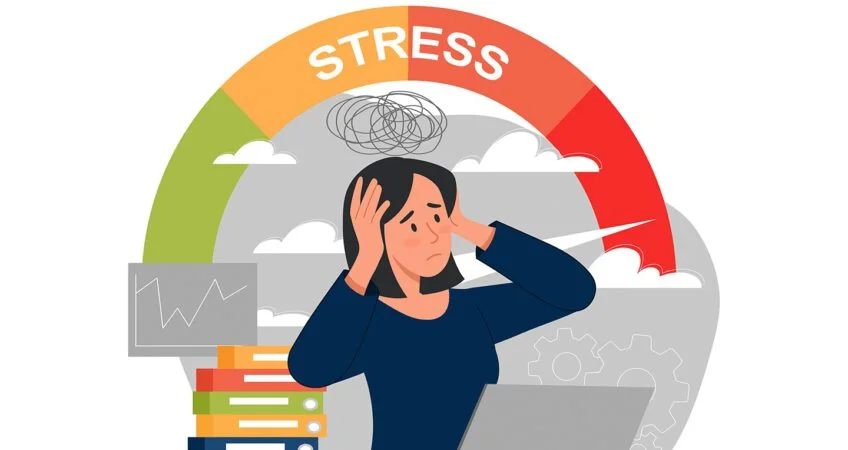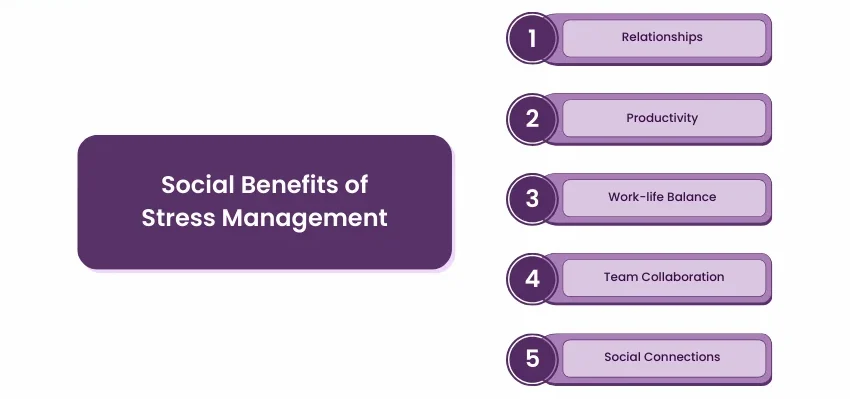Discover effective stress management tips tailored for busy women. Learn practical lifestyle changes, quick relaxation techniques, and wellness habits to reduce stress and improve overall well-being.
Introduction
Stress is an unavoidable part of modern life, especially for women who often juggle multiple roles such as careers, family responsibilities, social commitments, and personal goals.
While a certain amount of stress can motivate productivity, too much can lead to physical, emotional, and mental exhaustion. For busy women, effective stress management isn’t just a luxury—it’s a necessity for long-term health and wellness.
This article explores the top stress management strategies that fit into a busy lifestyle. From practical daily habits to simple relaxation exercises, these tips are designed to help women restore balance and maintain energy.
Common Mistakes Busy Women Make When Handling Stress
Many women unintentionally adopt habits that worsen their stress instead of easing it. Here are some common mistakes:
-
Neglecting Self-Care
Busy schedules often push personal needs to the bottom of the list. Women frequently prioritize work or family over rest, hobbies, and relaxation. -
Overcommitting
Saying “yes” to too many obligations can quickly lead to burnout. Without boundaries, even the most organized person can feel overwhelmed. -
Relying on Quick Fixes
Some women turn to caffeine, sugary snacks, or alcohol for temporary relief. While these may offer short-term comfort, they eventually increase stress and fatigue. -
Poor Time Management
Without proper planning, tasks pile up, leading to last-minute rushes and increased anxiety. -
Ignoring Sleep
Many underestimate the impact of quality sleep on stress levels. Staying up late to “catch up” often backfires, leaving the body and mind drained.
Recognizing these mistakes is the first step toward healthier coping strategies.
Examples of Stress Management in Action
-
At Work: A woman with a hectic schedule takes 10 minutes between meetings for mindful breathing, helping her reset focus and reduce tension.
-
At Home: Instead of multitasking dinner and emails, she plays calming music while cooking, turning the activity into a relaxing ritual.
-
Before Bed: Rather than scrolling on her phone, she journals about three things she is grateful for, improving her mood and preparing for restful sleep.
These small adjustments, when practiced consistently, can significantly reduce stress.
Actionable Solutions: Stress Management Tips
Here are practical strategies that busy women can incorporate into their lives:
1. Prioritize Self-Care
Set aside at least 15–30 minutes each day for personal activities, whether it’s reading, enjoying skincare, or simply relaxing. Self-care is a form of prevention against burnout.
2. Practice Mindful Breathing
Deep breathing exercises, such as inhaling for four counts, holding for four, and exhaling for six, help calm the nervous system. Even five minutes during a stressful moment can reset your mood.
3. Stay Physically Active
Exercise releases endorphins, which naturally improve mood. For busy women, short bursts of activity like a 20-minute walk, yoga stretches, or dancing at home can be just as effective as longer workouts.
4. Eat a Balanced Diet
Choose whole foods, fruits, and vegetables over processed snacks. Foods rich in magnesium, omega-3 fatty acids, and B vitamins can help regulate stress hormones. Avoid excessive caffeine, which can worsen anxiety.
5. Improve Sleep Hygiene
Create a bedtime routine that promotes rest: dim the lights, avoid screens an hour before bed, and keep your bedroom cool and quiet. Aim for 7–8 hours of quality sleep each night.
6. Manage Time Effectively
Break large projects into smaller, manageable steps. Use digital planners or apps to organize tasks, and learn to delegate where possible. Prioritization helps reduce overwhelm.
7. Build a Support System
Stay connected with family, friends, or colleagues you can talk to when feeling overwhelmed. Sometimes, simply sharing your thoughts helps lighten emotional burdens.
8. Try Relaxation Techniques
Meditation, journaling, or listening to calming music can help reduce stress. Start small—just five minutes a day—and gradually build the habit.
9. Learn to Say “No”
Protect your energy by setting boundaries. Declining unnecessary commitments allows you to focus on what truly matters without spreading yourself too thin.
10. Seek Professional Help if Needed
If stress begins to interfere with daily life, consider consulting a therapist, counselor, or healthcare provider. Professional guidance can help build effective coping mechanisms.
Long-Term Benefits of Stress Management
-
Better Physical Health: Reduced risk of high blood pressure, heart disease, and fatigue.
-
Improved Mental Health: Lower anxiety and depression levels.
-
Enhanced Productivity: Focus and concentration improve with reduced stress.
-
Stronger Relationships: Balanced emotions foster healthier connections with loved ones.
-
Sustained Energy: Proper stress management leads to higher energy levels throughout the day.
Social Benefits of Stress Management to busy women
Side Effects of Not Managing Stress in Busy Women
1. Physical Health Effects
-
Weakened immune system → more frequent colds, infections, and slower healing.
-
Headaches and migraines triggered by tension and lack of relaxation.
-
Digestive issues like bloating, indigestion, or irritable bowel syndrome (IBS).
-
Cardiovascular risks such as high blood pressure, irregular heartbeat, and increased risk of heart disease.
-
Weight fluctuations due to stress-induced overeating or appetite loss.
-
Sleep disturbances (insomnia, restless sleep, or fatigue).
2. Hormonal and Reproductive Health
-
Irregular menstrual cycles caused by cortisol disrupting reproductive hormones.
-
Increased PMS symptoms like cramps, mood swings, and bloating.
-
Reduced fertility due to chronic stress interfering with ovulation.
-
Exacerbation of conditions like PCOS or endometriosis.
3. Mental and Emotional Health Effects
-
Anxiety and panic attacks from constant pressure and overthinking.
-
Depression and low mood due to chemical imbalances in the brain.
-
Burnout leading to emotional exhaustion and loss of motivation.
-
Brain fog and poor concentration, making it hard to focus at work or home.
4. Lifestyle and Social Impact
-
Unhealthy coping mechanisms such as overeating, drinking, or smoking.
-
Strained relationships with family, friends, or colleagues due to irritability.
-
Reduced productivity from lack of focus and low energy.
-
Decreased quality of life as stress overshadows enjoyment and fulfilment.
5. Long-Term Risks
If unmanaged for years, stress can contribute to:
-
Chronic illnesses like type 2 diabetes, obesity, and autoimmune diseases.
-
Heart disease and stroke due to constant high blood pressure.
-
Accelerated aging (premature wrinkles, hair loss, fatigue).
-
Increased risk of mental health disorders requiring medical intervention.
FAQ Section
Q1: How can I reduce stress if I have no free time?
Even 5–10 minutes of breathing exercises, stretching, or a short walk can make a big difference without disrupting your schedule.
Q2: Is exercise really effective in managing stress?
Yes. Exercise triggers the release of endorphins—natural mood boosters—that lower anxiety and improve overall well-being.
Q3: Can diet affect stress levels?
Absolutely. Balanced meals stabilize energy levels and prevent mood swings, while caffeine and sugar spikes often increase stress.
Q4: Should I consider professional help for stress?
If stress feels overwhelming, persistent, or impacts daily functioning, it’s wise to seek help from a mental health professional.




Pingback: Understanding Thyroid Imbalance in Women